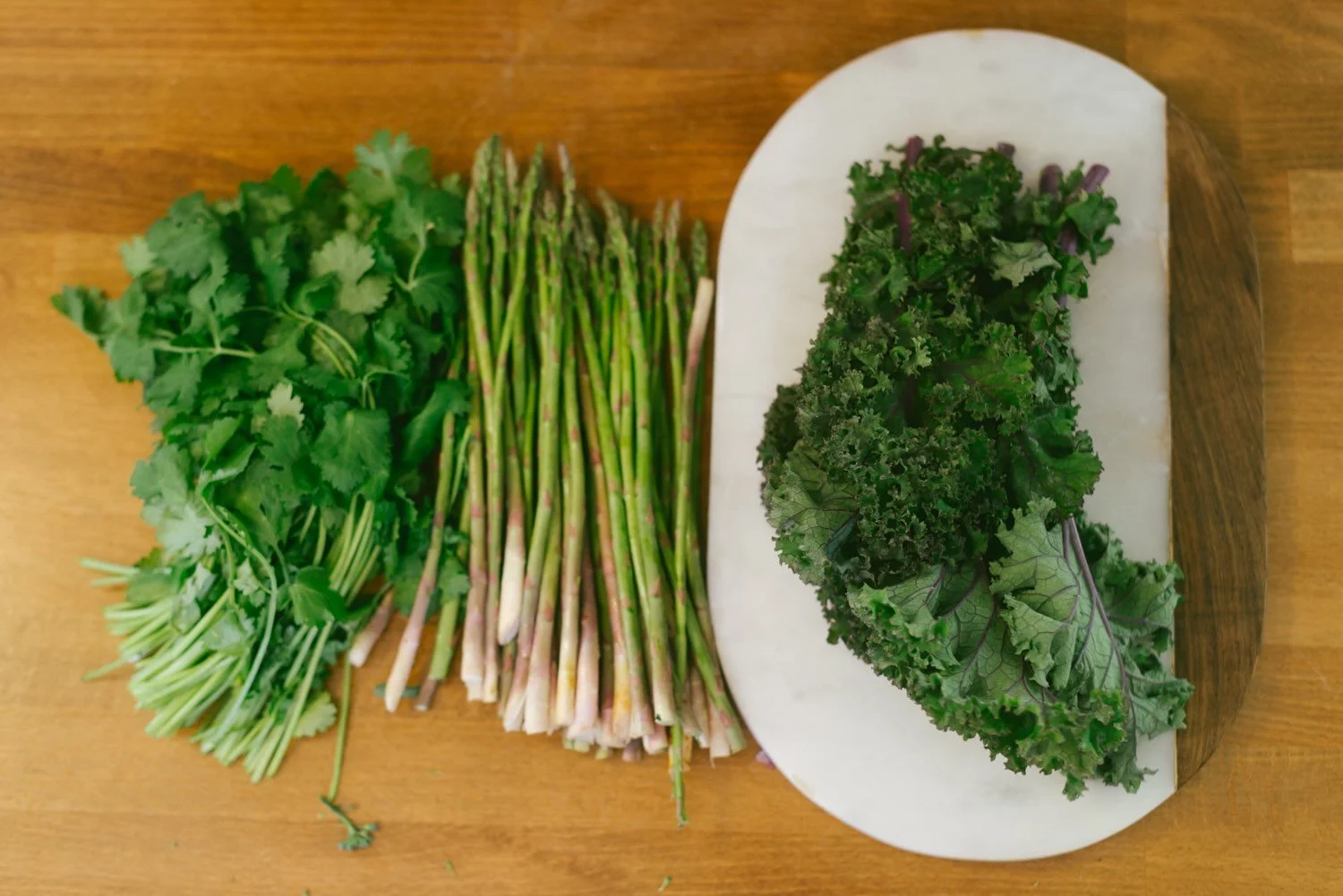Seasonal Ayurveda
A Guide to Eating, Living & Cleansing with the Seasons
In Ayurveda, the ancient science of life, nature’s rhythms aren’t something we observe from a distance — they’re the cycles that shape our bodies, minds, and digestion. By adjusting how we eat, live, and cleanse with the seasons, we create harmony between our inner and outer worlds.
Whether you’re seeking better digestion, more energy, or a deeper connection to the earth, seasonal Ayurveda offers a timeless path forward. This guide covers Ayurvedic seasonal eating, lifestyle shifts, and holistic cleansing, with links to detailed recipes, self-care practices, and gentle cleanses for spring and fall.
Why Seasonal Living Matters in Ayurveda
In Ayurveda, each season carries its own qualities (gunas) that influence the balance of the doshas — vata, pitta, and kapha. For example, the damp heaviness of spring can aggravate kapha, while the dryness of fall can imbalance vata. By shifting our Ayurvedic seasonal lifestyle — from diet to self-care — we can prevent imbalances before they arise.
Read more in: Dinacharya: Ayurvedic Daily Routine by Season
Seasonal Eating in Ayurveda
Why We Change Our Diet with the Seasons
Digestive strength (agni) naturally shifts throughout the year. Summer heat calls for cooling, hydrating foods, while winter invites hearty, warming meals. Eating in harmony with the seasons keeps digestion strong and supports long-term health.
Seasonal Guidelines & Recipes
Spring (Kapha Season) – Favor light, warm, gently spicy meals. Enjoy greens, sprouts, and lentils. Reduce heavy, oily, and dairy-rich foods. Read: Spring Ayurveda Foods for Kapha Balance
Summer (Pitta Season) – Choose cooling, hydrating foods like cucumbers, melons, and fresh herbs. Minimize overly spicy, oily, or salty foods. Read: Cooling Ayurvedic Recipes for Summer
Fall (Vata Season) – Eat warm, moist, grounding meals. Enjoy root vegetables, soups, stews, and ghee. Read: Vata-Balancing Fall Meals
Winter (Late Vata + Kapha) – Favor hearty grains, warming spices, and healthy fats to nourish ojas and immunity. Read: Winter Ayurveda Foods to Build Immunity
Seasonal Lifestyle Shifts
Ayurveda teaches that dinacharya (daily routine) changes with the seasons. What nourishes you in summer may not sustain you in winter.
Spring – Incorporate invigorating exercise, early rising, dry brushing, and breathwork to clear heaviness.
Summer – Slow down, avoid overexertion, and practice cooling pranayama like sheetali.
Fall – Create stability with warm oil self-massage (abhyanga), gentle yoga, and calming rituals.
Winter – Embrace rest, warmth, and nourishing self-care rituals to rebuild energy.
Explore: Self-Care Practices for Each Dosha and Season | Free Ayurvedic Daily Routine Checklist
Holistic Seasonal Cleansing
Cleansing in Ayurveda isn’t about deprivation — it’s about creating space for the body to rest and renew.
Best Times to Cleanse: Spring and fall are ideal for gentle detoxification.
Gentle Cleansing Options:
Kitchari mono-diet with digestive spices
Herbal teas to kindle agni and remove ama (toxins)
Rest, reflection, and reduced sensory overload
Post-Cleanse Care: Restore ojas with nourishing foods, warm milk tonics, and grounding practices.
Learn more: The Ultimate Guide to Ayurvedic Cleansing | Cleanse & Rejuvenation with Ayurveda
Save your spot in my seasonal cleanse, The Reset for Resilience.
Safety Note: Cleansing is not recommended during pregnancy, early postpartum, or periods of significant depletion.
Resources & Next Steps
Seasonal Ayurvedic Recipes — From kitchari to herbal tonics
Seasonal Self-Care Guide — Practices for each dosha and season
Book a Seasonal Ayurveda Consultation — Personalized seasonal diet and lifestyle plan



